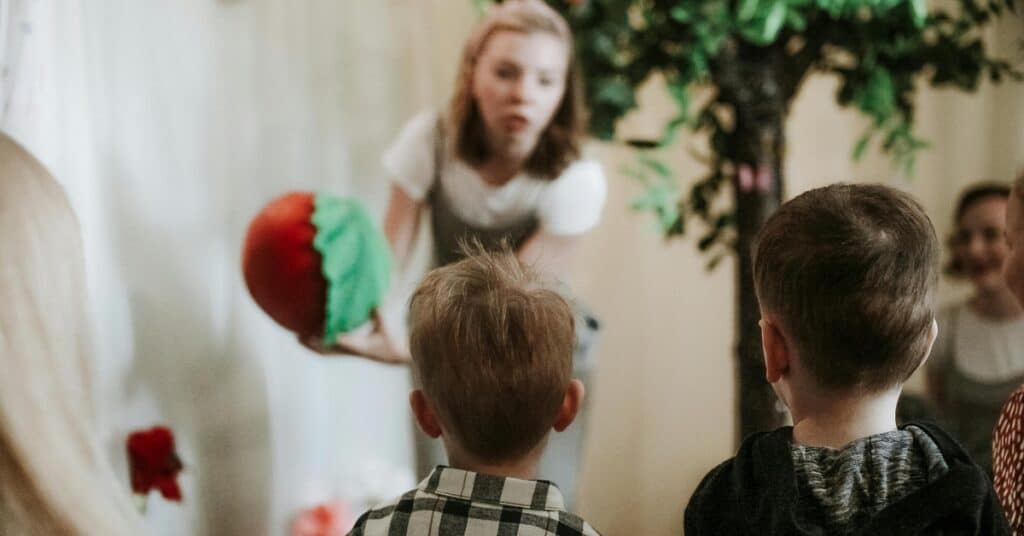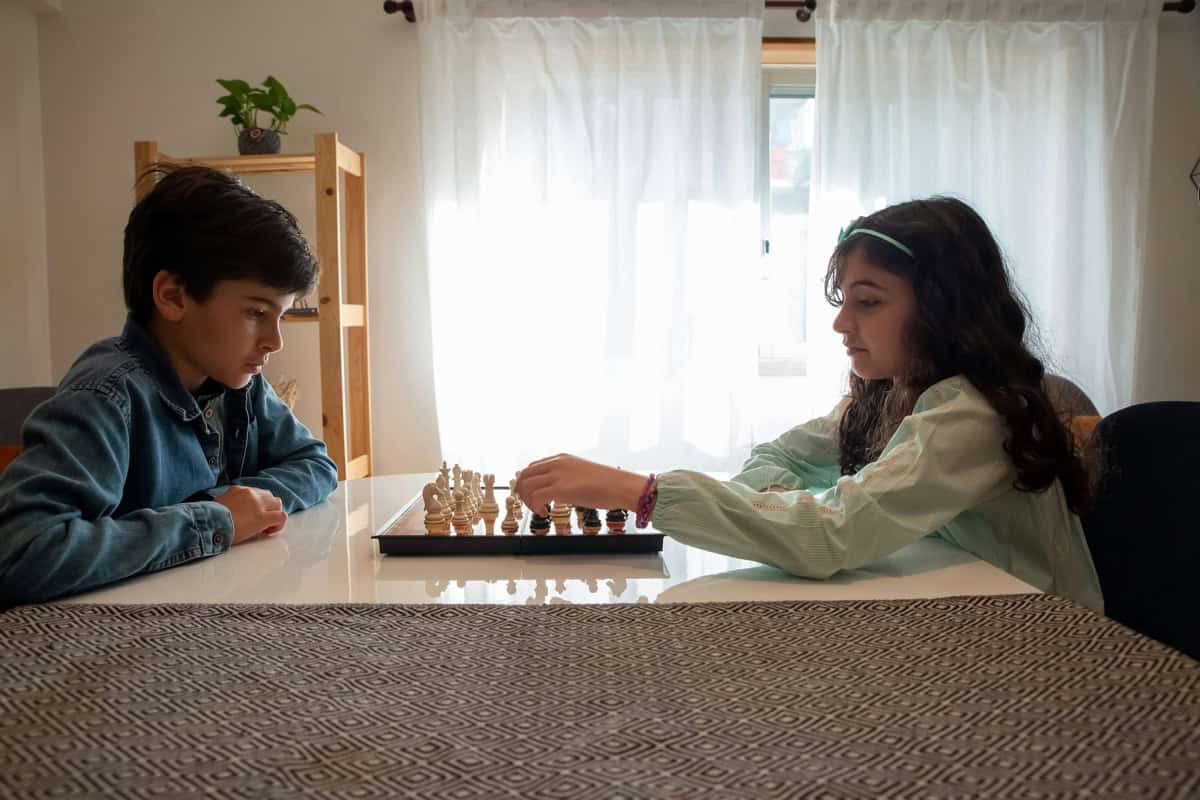
Sharon is a certified life coach and a mother of a gifted child. With expertise in coaching and personal development, she’s passionate about offering practical solutions that help families and individuals succeed.
Early signs of giftedness in toddlers are often subtle yet meaningful indicators of exceptional potential.
These may include advanced language skills, solving puzzles quickly, or demonstrating curiosity beyond their age.
This article will help you identify these traits and understand how they might influence your child’s future learning.
It also offers practical ideas for activities that can encourage growth and development.
By recognizing and nurturing these abilities, you can support your toddler’s unique strengths and set the foundation for their success. Keep reading to discover how to help your child thrive!
What is Giftedness in Toddlers?
Giftedness in toddlers refers to abilities that exceed typical developmental milestones for their age. These abilities may include advanced language use, rapid problem-solving, or an exceptional memory.
Gifted toddlers often show heightened curiosity, ask thoughtful questions, and grasp complex ideas about their surroundings. Recognizing these traits early helps parents provide the support and enrichment their child needs.
Identifying giftedness at a young age ensures the child has access to intellectual challenges, laying the groundwork for success in school and beyond. Early recognition also allows parents to nurture their child’s unique abilities, preparing them for advanced learning opportunities.
By paying attention to these early signs, you can better understand your child’s needs and help them unlock their full potential.
Early Signs of Giftedness in Toddlers by Age
Signs in 1-Year-Olds

Early Language Development
If your toddler starts speaking earlier than peers, uses complex words, or easily follows instructions, it may signal advanced cognitive skills.Advanced Motor Skills
Gifted toddlers often show refined coordination, such as handling objects skillfully, stacking blocks, or solving tasks that require precise hand-eye coordination.Curiosity and Observation
A gifted toddler may display heightened awareness, recalling people, places, or events with ease. This strong memory and keen observation suggest advanced intellectual development.Signs in 2-Year-Olds

By age 2, certain traits may stand out, indicating advanced development:
Rapid Vocabulary Growth
If your toddler is learning new words quickly, forming full sentences, or holding conversations with adults, it may signal giftedness.
Pay close attention if their language use and comprehension exceed typical expectations for their age.
Creative Problem-Solving
Gifted toddlers often find inventive ways to solve problems. They might explore how things work or repurpose everyday items in clever, unexpected ways.
Emotional Sensitivity
Early awareness of emotions can also be a sign. Gifted 2-year-olds often show empathy, recognize fairness, and respond thoughtfully to others’ feelings.
Signs in 3-Year-Olds

Early Reading Skills
Some gifted 3-year-olds may start recognizing letters or words and show a strong interest in books, often engaging with language well ahead of their peers.Complex Conversations and Questions
At this stage, gifted children may ask detailed, thoughtful questions about their surroundings. They often enjoy discussions with adults and use advanced vocabulary to express their ideas.Exceptional Memory and Focus
Gifted toddlers may recall events or details from months earlier and show sustained interest in specific topics. These traits reflect advanced cognitive abilities and a natural curiosity for learning.Signs in 4-Year-Olds

Advanced Creativity and Problem-Solving
Gifted 4-year-olds often think outside the box, asking “what if” questions and coming up with imaginative solutions to challenges. Their creativity tends to stand out in play and everyday situations.Sophisticated Social and Emotional Skills
These children may prefer conversations with older kids or adults, showing advanced empathy and an ability to understand others’ emotions. They often respond thoughtfully in social interactions, demonstrating emotional maturity.Independence and Motivation
A strong desire to complete tasks independently and a natural curiosity to learn new things can be key signs of giftedness. These children often show initiative and require little guidance to explore their interests.Preparing for Future Gifted Program Testing
Recognizing developmental milestones tied to early signs of giftedness can help you determine if your child is ready for formal gifted program testing.
Identifying these traits early allows parents to better understand their child’s strengths and learning needs.
Developmental Milestones to Watch for Before Gifted Testing
Many early indicators of giftedness, like problem-solving and advanced language use, suggest a child may benefit from formal evaluation. If your toddler consistently exhibits these traits, it might be time to explore testing options.
Key milestones to consider include:
Creative Problem-Solving
This skill often starts in younger toddlers and grows more refined by preschool age. Children who solve puzzles easily or use objects in innovative ways demonstrate cognitive growth that may indicate readiness for testing.Advanced Language Skills
Gifted children often expand on early language abilities, engaging in complex conversations and using vocabulary beyond their age. These signs may suggest the need for a formal evaluation to identify their potential.Age 3-5: The Prime Window for Cognitive Growth
The ages between 3 and 5 mark an important stage in cognitive development. During this time, early traits like problem-solving and advanced language skills become more refined and noticeable.
This period is also an ideal time for parents to consider formal testing. Children’s cognitive abilities at this age offer valuable insights into their learning needs and potential placement in gifted programs.
Children in this age range often exhibit:
- Focused Interests: Gifted children may show intense curiosity about specific topics, dedicating time and focus to learning more about them.
- Creativity and Independent Thinking: Innovative problem-solving and a strong sense of independence often emerge during this stage, highlighting their ability to think critically and independently.
Overview of Giftedness Tests for Young Children
Standardized tests are a common tool for identifying giftedness in young children, offering insights into their cognitive abilities and learning potential. These assessments measure skills such as problem-solving, language use, and memory.
Common Tests for Young Children
- Stanford-Binet Intelligence Scale: Suitable for children as young as 2, this test evaluates a wide range of skills, including memory, spatial reasoning, and logical thinking.
- Wechsler Preschool and Primary Scale of Intelligence (WPPSI): Designed for ages 2.5 to 7, this test measures verbal comprehension, fluid reasoning, and working memory.
- CogAT test: The CogAT is widely used as a placement test for gifted programs. It is administered from kindergarten to junior high school.
- SCAT test: The SCAT (School and College Ability Test) is a standardized test administered by the Johns Hopkins Center for Talented Youth (CTY) for identifying students for CTY programs.
What These Tests Measure
These evaluations provide a comprehensive view of a child’s cognitive strengths, helping parents and educators make informed decisions about their learning path.
- Problem-Solving and Logical Thinking: Tasks and puzzles assess creativity and logical reasoning.
- Verbal Skills: The tests evaluate vocabulary, comprehension, and sentence formation to understand language proficiency.
- Memory: Memory retention is assessed through exercises like recalling patterns, sequences, or learned information.
Preparing Toddlers for Gifted Testing
Supporting your toddler’s natural cognitive growth is the best way to prepare for gifted testing. Formal preparation isn’t necessary at this age and can create unnecessary pressure.
Instead, focus on activities that encourage curiosity, problem-solving, and independent thinking in a stress-free environment.
Simple Activities to Support Cognitive Development
These activities promote skills that naturally prepare toddlers for gifted testing while keeping the process enjoyable and pressure-free:
- Reading Together: Select age-appropriate books that challenge their understanding and inspire imagination.
- Puzzles and Games: Provide problem-solving games and puzzles to develop logical thinking and fine motor skills.
- Interactive Play: Encourage storytelling, role-playing, or creative play to boost language skills and emotional development.
What Happens After Testing?
Once testing is complete, the admissions committee reviews the scores to determine the best educational pathway for your child.
- For Qualified Students: Children who meet the criteria may be placed in a gifted program or receive advanced learning opportunities tailored to their needs.
- For Other Students: If your child doesn’t meet the program requirements, schools may suggest alternative enrichment options or re-testing at a later time to support their development.
When to Enroll in Gifted Enrichment Programs
If your child shows early signs of giftedness, enrolling in a gifted enrichment program can help nurture their cognitive abilities even before formal school testing.
These programs offer early cognitive stimulation and can help develop the skills that are often measured in future assessments, such as critical thinking and creativity.
Program Name | Description |
Northwestern University’s Center for Talent Development (CTD) | Offers PreK-Grade 2 programs focusing on early talent identification and enrichment activities. |
Provides online and on-campus programs for gifted students, starting at age 3, offering accelerated learning and specialized courses. | |
Offers year-round enrichment programs for gifted children from preschool to Grade 8, with both in-person and virtual options. | |
Provides a range of programs for profoundly gifted children, including online classes and summer programs starting from age 4. | |
Offers summer programs for gifted students ages 5 and up, with a multidisciplinary curriculum focused on STEAM and critical thinking. | |
Provides resources and guidance on finding enrichment programs in your area for young gifted learners. | |
A weekend enrichment program offering hands-on learning for gifted children ages 4-14. | |
Offers enrichment programs for gifted learners starting in preschool, with a focus on developing cognitive and social skills. | |
Offers a summer enrichment program for gifted learners ages 4-13, focusing on creativity, problem-solving, and critical thinking. |
Frequently Asked Questions
Is My Toddler Gifted or Just Advanced?
Early milestones, like walking or talking, don’t always indicate giftedness. Gifted children typically display advanced thinking skills, such as solving complex problems and understanding emotions at a deeper level than their peers.
Key Indicators of Giftedness:
- Rapid learning ability
- Intense curiosity
- Advanced problem-solving skills
- Strong memory
- Deep focus on specific interests
Can Giftedness Show Up in Only One Area?
Yes, giftedness can be concentrated in one area, such as math or language, while other areas, like motor skills or social interactions, may lag behind.
For example, a child may excel at solving puzzles but struggle with peer interactions or fine motor tasks like drawing.
This is especially common in twice-exceptional children, who have exceptional strengths in some areas and face challenges in others.
What Should I Do If I Suspect My Toddler Is Gifted?
If your toddler consistently demonstrates abilities beyond typical developmental milestones, consider professional testing between ages 3 and 5, when cognitive assessments are more reliable.
Testing too early may yield less accurate results due to variations in attention spans and development.
Consult with a pediatrician or child psychologist specializing in giftedness to determine whether testing is appropriate.
Meanwhile, nurture your child’s abilities through stimulating activities and observe how they handle new challenges.
These experiences can provide further insights into their unique strengths and needs.
Conclusion
Identifying early signs of giftedness in toddlers is a valuable step in understanding and supporting your child’s potential.
Recognizing traits such as advanced language skills, creative problem-solving, and emotional awareness can guide you in creating an environment where they can thrive.
Whether or not you choose formal testing, offering enriching activities tailored to their strengths can significantly support their growth.
Remember, every child is unique, and early recognition of their abilities can lead to opportunities that help them achieve their full potential.






